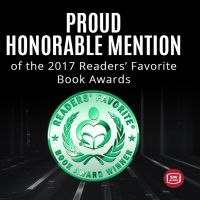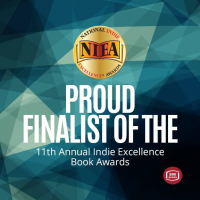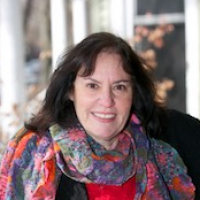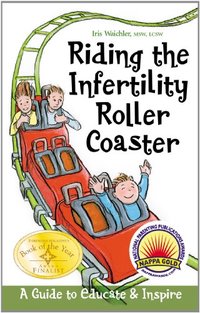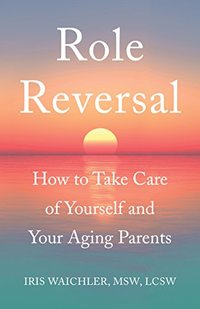Where were you born and brought up? What is your fondest childhood memory?
I was born in Skokie, Illinois. I had a wonderful childhood full of great memories. One of my fondest was our dog, Valentine. She was a German Shepherd born on February 14. I named her. She was very loving and sweet making nightly hourly rounds to check on us to make sure we were OK.
Being a medical social worker for 40 years, why did you go into social work?
I originally was in Psychology at the University of Iowa. But that program focused on us working with lab rats. I wanted to work with people so I switched to Social Work. I lived near a hospital and decided when I grew up I wanted to work there not knowing what specialty it would be. I did go back and work there as a medical social worker on the Physical Medicine and Rehabilitation Unit. I also covered the Emergency Room.
What inspired you to start reading?
I have been a reader as long as I can remember. My parents read to us every night and we were lucky enough to have lots of books. Our elementary school really emphasized reading with special programs. My love of books was cemented at a very young age. We instilled that in our daughter as well.
Your thoughts on conventional vs. self-publishing? What route did you choose and why?
I have published 3 books all in different venues. My first book was done with a traditional publisher in 1988. I just got lucky with a small publishing company. My second was done with an independent publisher in 2006. My latest book was done with a hybrid publisher. The publishing world has changed a great deal. Some of the large publishing companies are gone now. The good news for authors is there is a wider range of publishing options available the spectrum being from self published to a major publishing company. It is more challenging now for a new or lesser known author to get a large publishing company on board. I personally found the hybrid model was a good fit for me. They offered a wide range of services including editing, designing a book cover, and book design. An author puts some money up front but gets a larger percentage of book sales. She Writes Press, which is the hybrid publisher I worked with, produces a high quality book. I was very pleased with the result and they were great in terms of collaboration.
Who are some of your favourite authors and how have they influenced your writing?
Some of my favorite authors include Harper Lee, Barbara Kingsolver, Alice Munro, Maya Angelou, Dani Shapiro, Joan Didion, David Sadaris, Erik Larson. It is an eclectic list. I think To Kill a Mocking Bird is the perfect book. In reviewing this author list I believe that I am attracted to writers who are good at articulating the human experience and examining the complexities of coping with life challenges. The focus of my books and articles is all non fiction. My writing goals are to empower and educate my readers and help them feel less alone with the challenges they face in their lives. It has advocacy at its core. I look at universal themes primarily around challenges related to medical and emotional life events. Role Reversal How to Take Care of Yourself and Your Aging Parents is part memoir about my dad’s life. I like looking at people who may be perceived as ordinary who do extraordinary things.
What do you enjoy doing apart from writing in your free time?
In my free time I enjoy traveling. I love the outdoors and seeing new places. I spend a lot of time with family and friends. I also love music so I try to attend music festivals and concerts. I play very bad guitar. I also love movies.
What made you decide to write and publish "Riding the Infertility Roller Coaster"? Are the events described in the book in any way inspired by real life?
All of my books were inspired by real life events. I personally experienced infertility. It is so overwhelming and so many people suffer from infertility related problems. It is a life crisis. I made a promise to myself that if I was lucky enough to have a child I would do everything in my power to help others who battled infertility. I wrote Riding the Infertility Roller Coaster. I also did a lot of freelance writing for major infertility sites. In addition I did individual and group counseling for RESOLVE, the national infertility association.
When researching for a book, do you prefer to talk to people or read books or articles for research? Or a combination of both?
Research is an important part of my preparation before I write a book. If I don’t have anything new to say about a topic, what is the point of writing a book. I always spend months reading books and articles on a topic I am interested in writing about. I also like to interview people who have expertise in areas I don’t to add important and different perspectives for my readers. I interviewed many people who made different choices regarding their infertility paths for Riding the Infertility Roller Coaster. I also interviewed a nurse and Estate Planning lawyer for Role Reversal.
How did you come up with the idea for Role Reversal? How long did it take for you to write it?
In terms of Role Reversal I originally was going to do a memoir about my father. He was a remarkable man in many ways and a member of the greatest generation. He had written a little autobiography and I thought it would be interesting to have the book contain his voice as well as mine. As I spoke with people about what I was working on it was clear that a growing number of people were struggling with their roles as caregivers. I thought it would be important to use my professional expertise as a medical social worker and blend it with my personal experience as a caregiver for my parents and a couple of friends. The challenge was how to take these two very different themes and make them a book that readers would want to read. In the middle of writing my book my father at age 96 became very ill. I discuss this in the book. His health continued to deteriorate and he died. My grief made it impossible to write for about 3 months. So it took me about 18 months to finish my book.
What are the biggest challenges that you have faced while writing a memoir?
The biggest challenge in writing a memoir is trying to be honest about the story you are telling. There is also a concern about how they people you talk about in the book are going to react. In my case, I spoke with my father and siblings before I began the book and told them I would share what I wrote about them. We are a very close family. They trusted me and were happy with the finished product. In addition for me there was a fear that maybe people would not be interested in my father’s story. He was not a famous celebrity. Agents and publishers I contacted told me that was a problem for them. I was very gratified to hear that many of my readers were very touched by his story and discovered themes in his life that mirrored some of their own experience.
What are some of the other things you are passionate about apart from writing?
My other passions include helping people cope with grief and loss. I think that is something we all struggle with. I loved my role as a social worker and am now recently retired. I still participate in a practitioner group. We all have worked with people who are seniors and bring a multitude of disciplines to the discussion. I am so glad senior care is now talked about more openly. I love to read. I read every night before I go to bed. I love movies and attend an annual film festival. I also am in regular contact with other authors and we meet and discuss our experiences. Finally, I love music and traveling.
What is the weirdest thing you've ever googled for research for one of your books?
The most unusual things I have googled for my research relates to infertility. There are more and more people who are coming forward revealing that as a result of sites like ancestry.com where they learn that people they thought were biologically related to they are not. Last year The New York Times did a special section filled with these stories from over 30 people. Also, I have read about clinics that have placed the wrong embryos and people have had children that had no biological connection to them without their knowledge or consent. These outcomes can be devastating and alter many lives.
If you could describe your journey as an author in one word, what would it be?
Describing my journey as an author the word that pops up is “unexpected.” I never meant to have a writing career. After my daughter was born I wanted to keep doing something that was challenging and that I was passionate about. I knew I could not continue to be a full time medical social worker anymore. I decided to start writing and things evolved from there.
How does writing make you feel? When you're not writing, what does a normal day for you look like?
Writing something that touches other people in profound ways makes me feel great and grateful. I heard from a woman in Shri Lanka after she read Riding the Infertility Roller Coaster. Nobody there spoke about infertility and she felt so hopeless and alone. She wrote to thank me and told me she wept tears of joy knowing others felt the way that she did. That meant the world to me. My “normal” days involve pretty hard physical exercise, walking my dog, playing guitar, doing marketing for my book, and spending time with friends and family.
How has AllAuthor helped you in the marketing and promotion of your books? Would you recommend this platform to your author friends?
AllAuthor has been a great help to me in terms of marketing my books in new and creative ways. It has helped me reach a larger audience. It has helped me sell my books. I have social media sites and have used AllAuthor memes on all my sites with good results. I have already mentioned it to my author contacts as an option they should consider pursuing.






